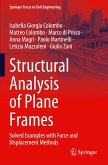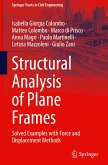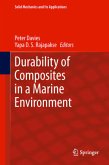Extensive numerical methods for computing design sensitivity are included in the text for practical application and software development. The numerical method allows integration of CAD-FEA-DSA software tools, so that design optimization can be carried out using CAD geometric models instead of FEA models. This capability allows integration of CAD-CAE-CAM so that optimized designs can be manufactured effectively.
Structural design sensitivity analysis concerns the relationship between design variables available to the design engineer and structural responses determined by the laws of mechanics. The dependence of response measures such as displacement, stress, strain, natural frequency, buckling load, acoustic response, frequency response, noise-vibration-harshness (NVH), thermo-elastic response, and fatigue life on the material property, sizing, component shape, and configuration design variables is defined through the governing equations of structural mechanics. In this 2-volume set, first- and second- order design sensitivity analyses are presented for static and dynamics responses of both linear and nonlinear elastic structural systems, including elasto-plastic and frictional contact problems.
Book 2 covers design sensitivity analysis of nonlinear structural systems using continuum design sensitivity analysis methods. It also discusses practical design tools and applications; sizing and shape design parameterization, design velocity field computation, numerical implementation of the sensitivity for general-purpose code development, and various other practical design applications.
Hinweis: Dieser Artikel kann nur an eine deutsche Lieferadresse ausgeliefert werden.
Structural design sensitivity analysis concerns the relationship between design variables available to the design engineer and structural responses determined by the laws of mechanics. The dependence of response measures such as displacement, stress, strain, natural frequency, buckling load, acoustic response, frequency response, noise-vibration-harshness (NVH), thermo-elastic response, and fatigue life on the material property, sizing, component shape, and configuration design variables is defined through the governing equations of structural mechanics. In this 2-volume set, first- and second- order design sensitivity analyses are presented for static and dynamics responses of both linear and nonlinear elastic structural systems, including elasto-plastic and frictional contact problems.
Book 2 covers design sensitivity analysis of nonlinear structural systems using continuum design sensitivity analysis methods. It also discusses practical design tools and applications; sizing and shape design parameterization, design velocity field computation, numerical implementation of the sensitivity for general-purpose code development, and various other practical design applications.
Hinweis: Dieser Artikel kann nur an eine deutsche Lieferadresse ausgeliefert werden.
From the reviews:
"This recent book ... deals with all aspects of sensitivity analysis for structural systems. ... One highlight is the elaboration on the differences in working with the reduced stiffness matrix and with the generalized stiffness matrix. ... There are many other details that readers will appreciate when using the book ... . The book is a welcome, up-to-date addition to the literature in the area and it is a must as a reference volume for any research group working in sensitivity analysis and design optimization." (Martin P. Bendsøe, Structural Multidisciplinary Optimization, Vol. 32, 2006)
"This recent book ... deals with all aspects of sensitivity analysis for structural systems. ... One highlight is the elaboration on the differences in working with the reduced stiffness matrix and with the generalized stiffness matrix. ... There are many other details that readers will appreciate when using the book ... . The book is a welcome, up-to-date addition to the literature in the area and it is a must as a reference volume for any research group working in sensitivity analysis and design optimization." (Martin P. Bendsøe, Structural Multidisciplinary Optimization, Vol. 32, 2006)








